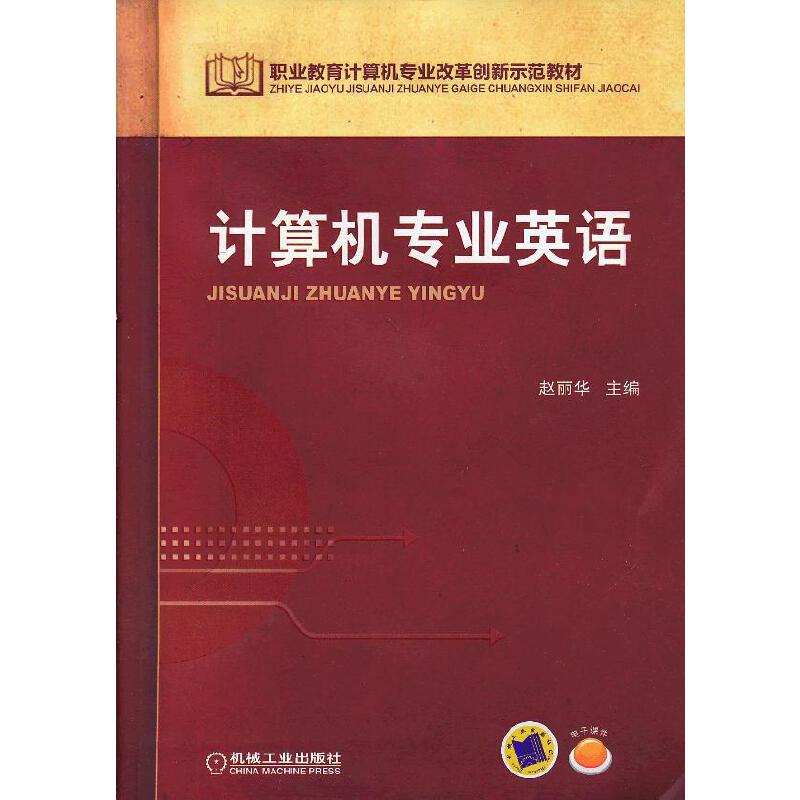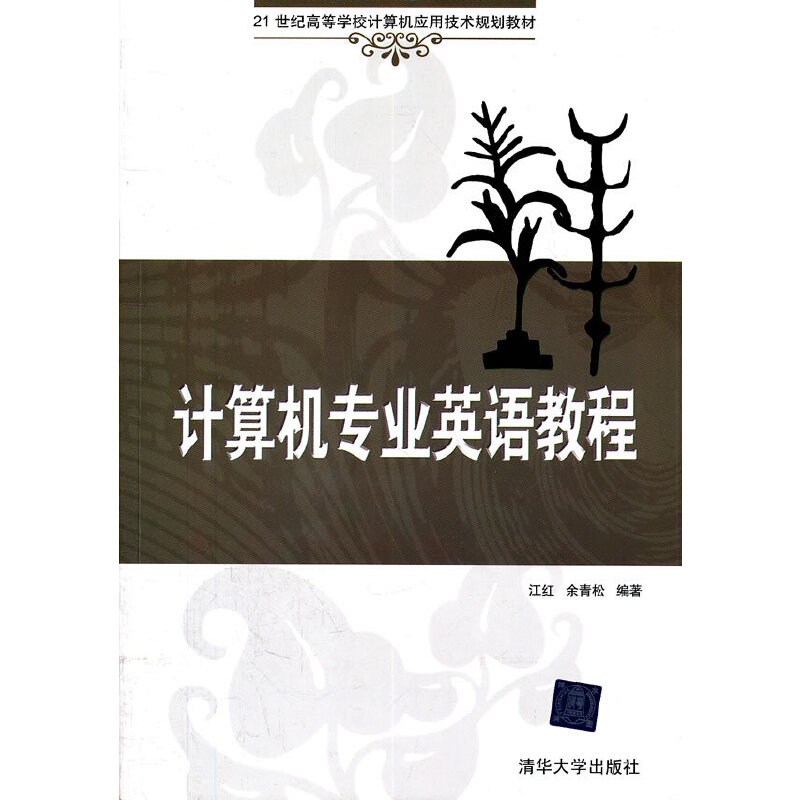计算机专业英语教程(第6版)(含DVD光盘1张) / 高等学校专业英语教材
作者: 金志权
出版时间:2016年1月
出版社:电子工业出版社
- 电子工业出版社
- 9787121261312
- 1-2
- 175903
- 0046170504-8
- 平塑
- 16开
- 2016年1月
- 724
- 344
- TP3
- 专业基础课
- 研究生、本科
本书配有的注释和练习旨在提高读者阅读与笔译专业英语文献资料的能力,以及提高会看、会听、会说和会写的英语四会能力。
本书素材取自近年来国外计算机科学各领域的最新教材、专著、论文和计算机网络信息,内容新颖、与时俱进、覆盖面广、结构合理、系统性强。为了方便读者,本书配有光盘,内容包含单词汇总、缩略语与术语索引以及部分音频和视频素材等。为了方便教学,另配有教学资源,向采用本书作为教材的教师免费提供,请登录华信教育资源网(www.hxedu.com.cn)注册后下载。
本书可以作为高等院校计算机、软件工程、信息系统、电子商务以及其他相关专业的专业英语教材,也可供计算机专业人员、IT专业人员或其他有兴趣的读者学习参考。
Unit 1 Hardware Ⅰ
1.1 A Closer Look at the Processor and Primary Storage
1.2 Integrated CircuitMoore’s Law
1.3 Multicore Processors
1.4 Computer Architectures
Unit 2 Hardware Ⅱ
2.1 Optical Storage Media: HighDensity Storage
2.1.1 Optical Laser Disks
2.1.2 DVDs
2.2 Display Devices
2.3 3D Printing
2.4 The External Interface: USB
Unit 3 Computer Programming and Programming Languages
3.1 Computer Programming
3.2 C++ and ObjectOriented Programming
3.3 JavaScript Tutorial
3.4 Introduction to Java
3.5 Characteristics of Web Programming Languages
Unit 4 Operating System
4.1 Summary of OS
4.2 Using the Windows Operating System
4.3 Window Managers
4.4 Myths of UNIX
4.5 Using Linux in Embedded and Realtime System
Unit 5 Computer Networks
5.1 Internet
5.2 Extending Your Markup: An XML Tutorial
5.3 Network Protocols
5.3.1 Protocol Hierarchies
5.3.2 WAPThe Wireless Application Protocol
5.4 Mobile Internet, Mobile Web
Unit 6 Network Communication
6.1 Two Approaches to Network Communication
6.2 Carrier Frequencies and Multiplexing
6.3 Internet of Things
6.4 Wireless Network
Unit 7 Database
7.1 An Overview of a Database System
7.2 Introduction to SQL
7.3 Objectrelational Database
7.4 Data Warehouse
7.4.1 Data Warehouse
7.4.2 What is Data Mining?
7.5 Big Data
Unit 8 Multimedia
8.1 Introduction
8.1.1 Main Properties of a Multimedia System
8.1.2 Multimedia
8.2 Audio
8.2.1 Computer Representation of Sound
8.2.2 Audio Formats
8.2.3 MP3 Compression
8.3 Video
8.3.1 Video Compression
8.3.2 MP4
8.4 Synchronization
Unit 9 Artificial Intelligence
9.1 Overview of Artificial Intelligence
9.2 About Expert System
9.3 Neural Networks
9.4 Industrial Robotics
Unit 10 Data Structure and Algorithms
10.1 Abstract Data Types and Algorithms
10.2 Spanning Tree
10.3 Block Sorting Algorithms: Parallel and Distributed Algorithm
10.4 DivideandConquer
Unit 11 Fundamentals of the Computing Sciences
11.1 Set Theory
11.2 Predicates
11.3 Languages and Grammars
11.4 FiniteState Machines
Unit 12 Computer Applications Ⅰ
12.1 Computer Graphics
12.2 ComputerAided Design
12.3 The Virtual Reality Responsive Workbench
12.4 Graphical User Interface
Unit 13 Computer Applications Ⅱ
13.1 Distance Education Technological Models
13.2 Electronic Business
13.3 EGovernment—Introduction
13.4 Office Automation
Unit 14 Computer Applications Ⅲ
14.1 Geographic Information Systems (GIS): A New Way to Look at Business Data
14.2 Introduction to GPS
14.3 Management Information Systems (MIS)
14.4 Enterprise Resource Planning
Unit 15 Software Development
15.1 Overview of Software Engineering
15.2 Unified Modeling Language
15.3 Integrated Computer Aided Software Engineering
15.4 Agile Software Development Methods
15.5 Middleware
Unit 16 Network Security
16.1 What Do I Need to Know about Viruses?
16.2 Modern Cryptography—Data Encryption
16.3 Firewalls and Proxies
Unit 17 Some Computer Systems
17.1 Embedded Systems
17.2 Distributed Systems
17.3 Cloud Computing and Cloud Storage
参考译文
1.2 集成电路——摩尔定律
2.4 外部接口: 通用串行总线
3.2 C++和面向对象的程序设计
4.4 UNIX的神话
4.5 在嵌入式和实时系统中使用Linux
5.3.1 协议分层
6.1 网络通信的两种方法
6.4 无线网络
7.1 数据库系统概述
7.5 大数据
8.3.1 视频图像压缩
9.2 专家系统
9.3 神经网络
10.3 块排序算法:并行和分布式算法
10.4 分治法
11.2 谓词
12.3 虚拟现实响应工作台
12.4 图形用户界面
13.1 远程教育技术模型
14.1 地理信息系统(GIS):查看商务数据的新方法
15.2 统一建模语言
16.2 现代密码学——数据加密
16.3 防火墙和代理
17.3 云计算和云存储
Bibliography


















